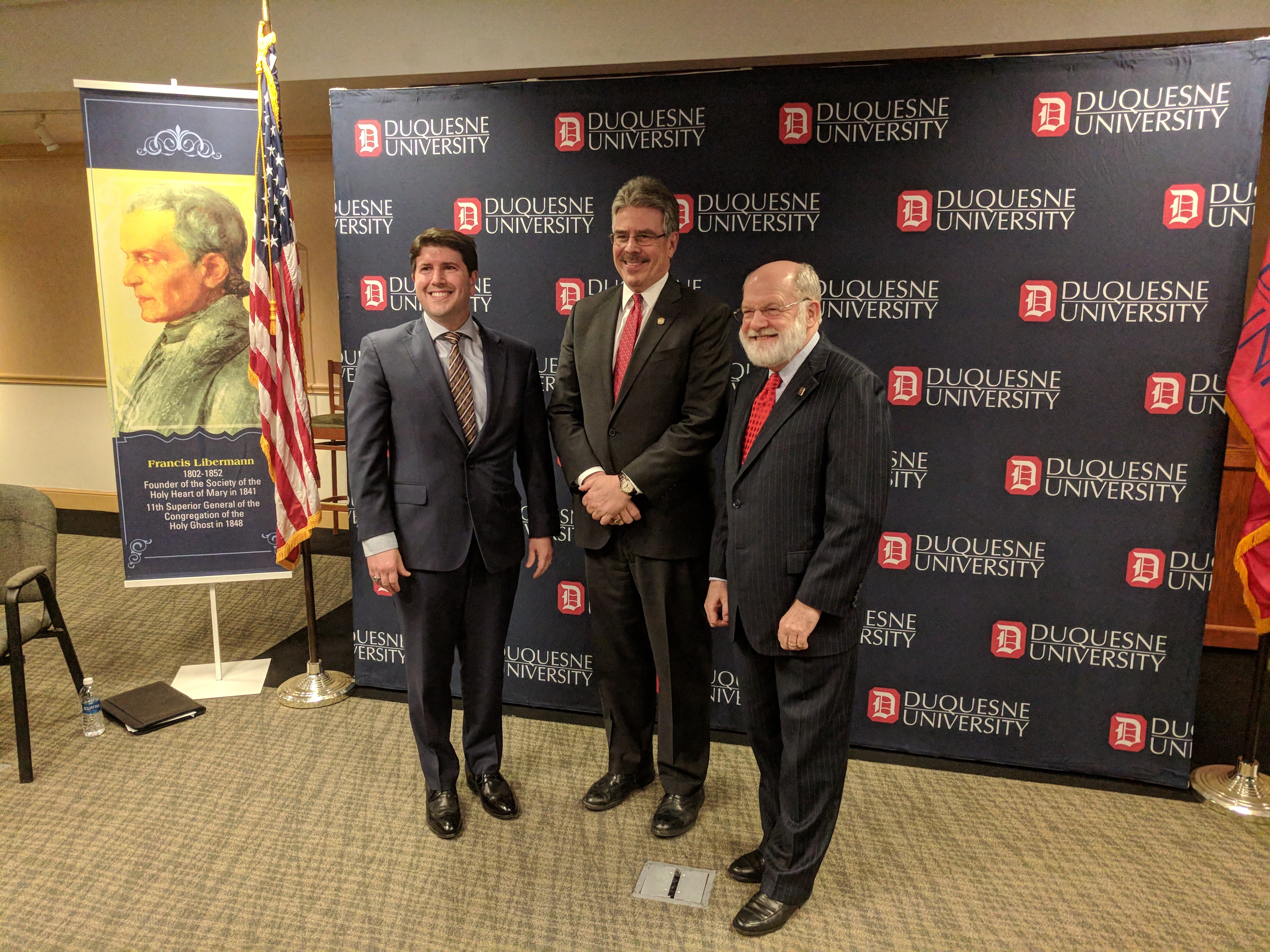Hannah Boucher | staff writer
02/06/2020
The Human Rights Film Series has come a long way since its beginnings. Exactly 13 years ago, it started out as a foreign film festival, but after recognizing that Pittsburgh lacked a human rights film series, professors Mark Frisch and Edith Krause changed the event into what it is today. This year, Frisch and Krause were also joined by professor Leonardo Bacarreza in the planning of the festival.
Krause, a German professor at Duquesne, has been able to watch this annual film festival develop into something that now reaches more than just students studying modern foreign languages.
“We try to select films that might have a bearing on discussions that might happen on campus,” Krause said.
When selecting the films each year for the festival, the board members contact foreign film producers in order to preview films. Each board member watches multiple films, but when one stands out, all of them watch it to decide if it makes the cut for the festival. Once all of the films are selected, then the members decide on the theme based on what resonates through all of the films.
This year’s theme, “In Pursuit of Justice,” focuses on the modern human rights issues that people face all around. Many, if not all, of the films that have been selected for this season are meant to call students to action.
“These are all very important films, and they all deserved to be talked about, especially this year when we have an election coming up … very much is at stake,” Krause said.
Along with addressing the issue of global justice, the films address other controversial topics, such as gun control, sexual assault and conservation. The goal is to encourage students and community members to discuss the issues depicted in these films.
Katelyn Garland, a third-year education major, attended the first film of the series, Roll Red Roll, on Jan. 28. Roll Red Roll covers the 2012 Steubenville, Ohio trial of a young woman who was raped, and the deeply-rooted issue within our culture surrounding sexual assault.
“It was a little bit hard to watch,” Garland said. “I think it was because it was so relatable to my high school.”
Another film that may strike a chord with students is Invisible Hand, a documentary that focuses on the environmental risks of fracking. Grant Township, the township featured in the film, is a neighboring town to Pittsburgh, with streams that feed into the Allegheny River.
Due to the fact that this film hits so close to home, Krause, Frisch and Bacarrueza were able to get the director of the film, Joshua B. Pribanic, to speak on behalf of the documentary.
While every film has a speaker lined up to present after the showing, this is the only film this year that has the actual director coming to Duquesne. Speakers range from detectives to professors.
Frisch, Krause and Bacarreza urge students to attend as many of these screenings as possible so they can be in touch with what is going on in the world.
“These issues are manageable. We can make the world better. We can improve our justice system. If you’re willing to get involved and take action, you can make a difference.” Frisch said.




